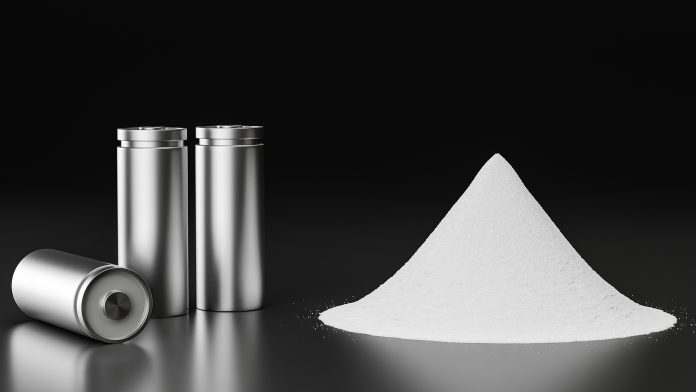New findings suggest that almost half the US demand for lithium could be produced from wastewater in Pennsylvania.
An analysis of Pennsylvania Department of Environmental Protection compliance data found that Pennsylvania wastewater could supply up to 40% of the country’s lithium demand.
If extracted with complete efficiency, the lithium from wastewater from Marcellus shale gas wells could prove instrumental in fuelling the US’ climate goals.
Currently, the nation heavily relies on lithium imports, posing supply chain risks.
Obtaining lithium from wastewater resources could enable significant domestic lithium production capabilities.
The US’ growing demand for lithium
Lithium is an essential ingredient in a range of green technologies, most notably in manufacturing batteries for electric vehicles.
Reuters estimates that the US demand for lithium batteries will increase more than six times by 2030.
Due to its importance in the green transition, lithium has been categorised as a critical mineral by the U.S Geological Survey.
However, currently, the US is reliant on imports of lithium, predominantly from brine ponds in Chile, where it is then shipped to China for processing.
Pennsylvania wastewater presents a promising alternative lithium source that can meet the growing demand.
Lithium resources from wastewater in Pennsylvania
The presence of lithium in Marcellus shale wastewater was expected due to the minerals and elements it collects during hydraulic fracking.
Pennsylvania’s regulatory requirements facilitated this discovery as companies must analyse and report the substances in their wastewater, including lithium.
Meeting 30% to 40% of the nation’s lithium needs by extracting it from wastewater could significantly aid in achieving 2030 requirements.
Moreover, lithium-rich wastewater extends beyond Pennsylvania’s borders.
Justin Mackey, a researcher at the National Energy Technology Laboratory, explained: “There are lithium mining operations in the US, but this is different. This is a waste stream, and we’re looking at a beneficial use of that waste.
“Wastewater from oil and gas is a burgeoning issue. Right now, it’s just minimally treated and reinjected. But it has the potential to provide a lot of value.
“Pennsylvania has the most robust data source for Marcellus shale. But there’s lots of activity in West Virginia, too.”
The next steps to utilise this resource involve assessing the environmental implications of extraction and establishing a pilot facility to develop extraction methods.









